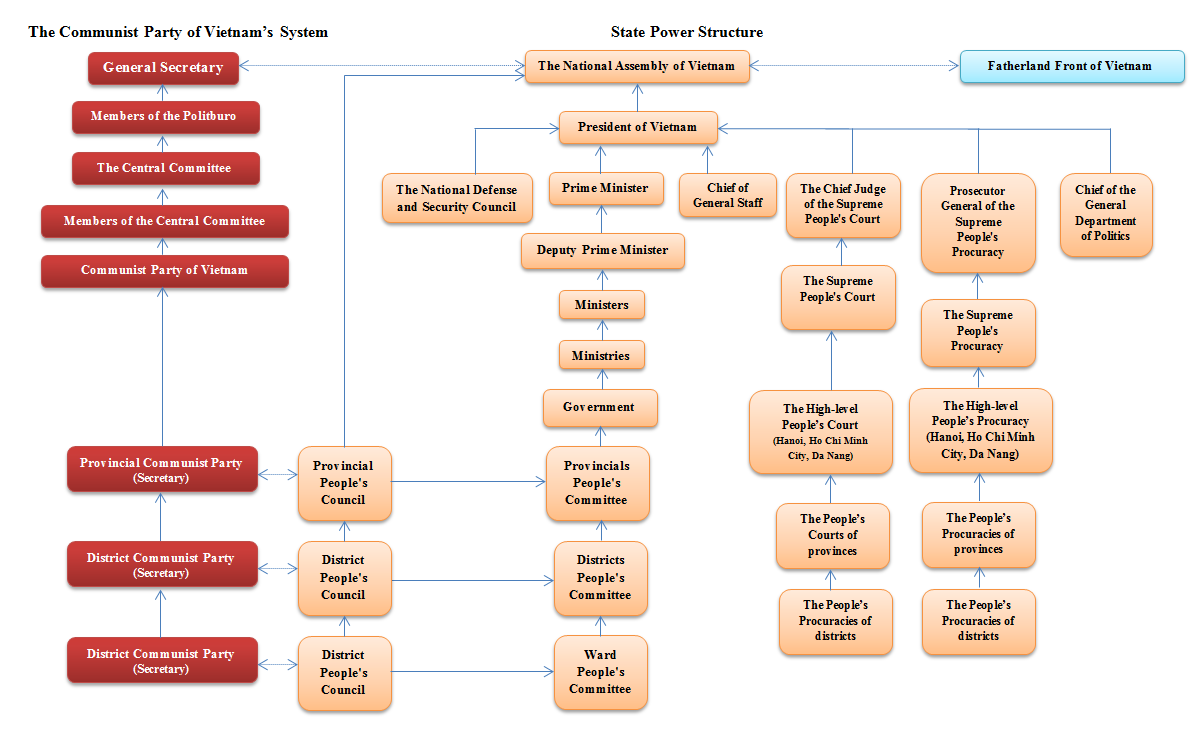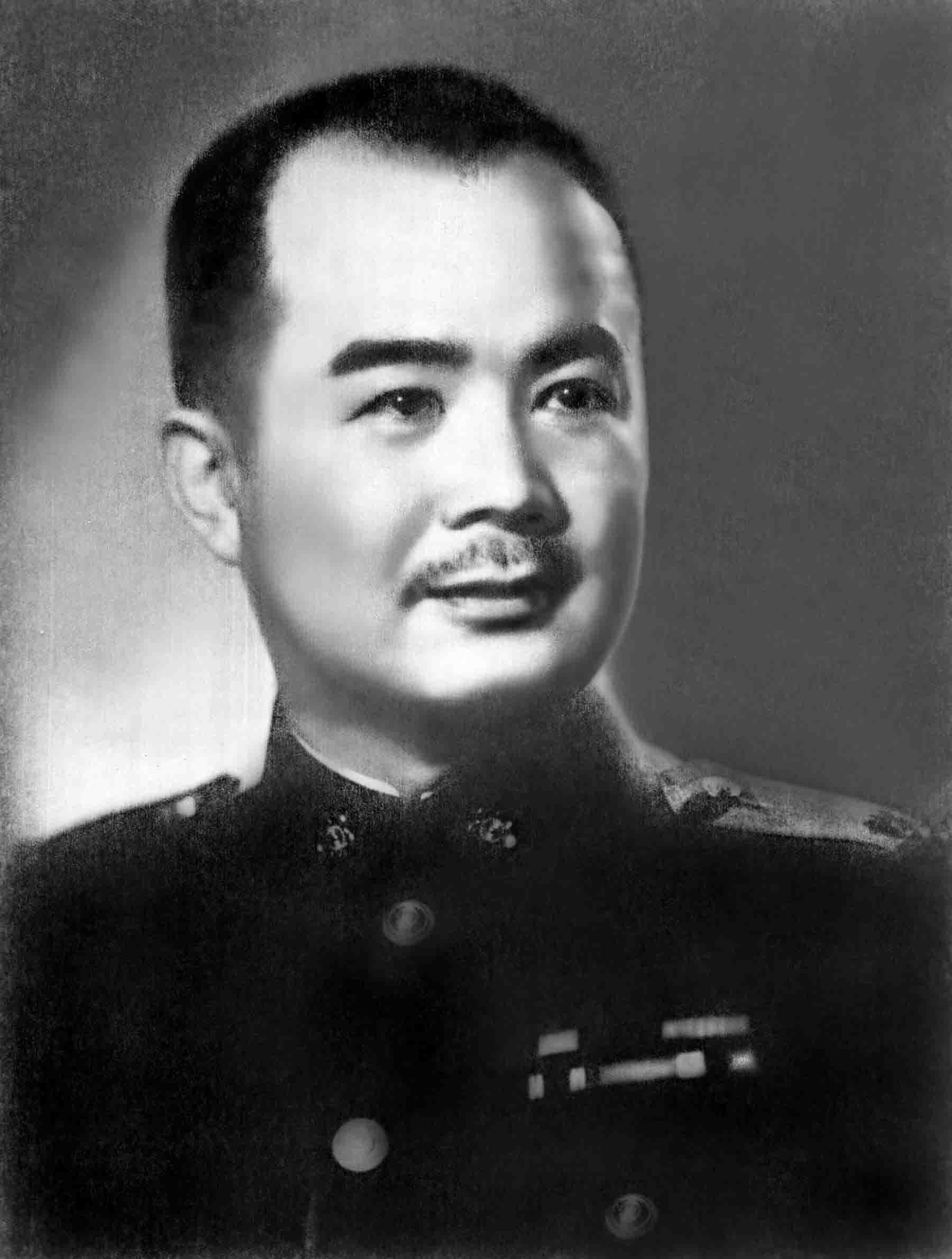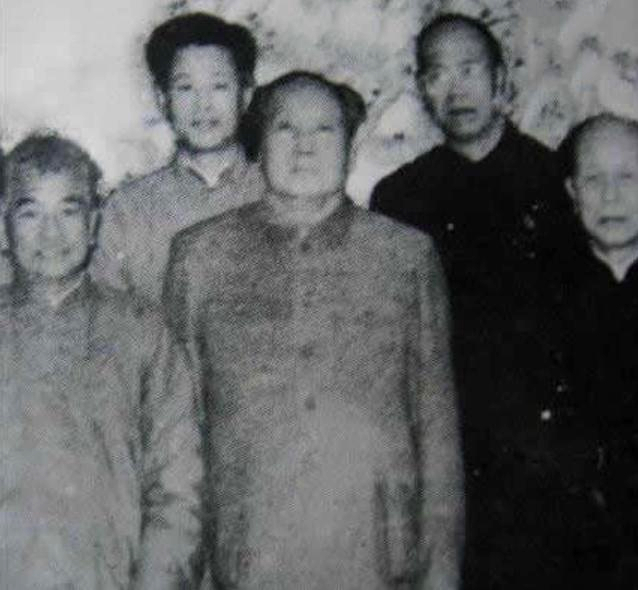|
7th National People's Congress
The 7th National People's Congress (NPC) was in session from 1988 to 1993. It held five sessions in this period. Seat distribution The first session Elected state leaders In the 1st Session in 1988, the Congress elected the state leaders: *President of the People's Republic of China: Yang Shangkun *Chairman of the Standing Committee of the National People's Congress: Wan Li *Premier of the State Council: Li Peng *Chairman of the Central Military Commission: Deng Xiaoping *President of the Supreme People's Court: Ren Jianxin *Procurator-General of the Supreme People's Procuratorate: Liu Fuzhi Third Session At the 3rd session on April 4, 1990, the Hong Kong Basic Law was passed, which came into force 7 years later on July 1, 1997.https://www.rightofassembly.info/assets/downloads/Hong_Kong_Basic_Law.pdf References External links Official website of the NPC {{National People's Congress National People's Congresses National People's Congress National People's Congress ... [...More Info...] [...Related Items...] OR: [Wikipedia] [Google] [Baidu] |
Highest Organ Of State Power
The supreme state organ of power, also known as the highest state organ of power, is the representative organ in communist states that functions as the sole branch of government according to the principle of unified power. For example, the government of the Soviet Union was designated as the highest executive and administrative body of the supreme state organ of power, the Supreme Soviet of the Soviet Union, All-Union Supreme Soviet. The powers of the supreme state organ of power are constrained only by the limits it has itself set by adopting constitutional and legal documents. In China, according to Chinese legal scholar Zhou Fang, "[t]he powers of the National People's Congress as the supreme state organ of power are boundless, its authority extends to the entire territory of the country, and, if necessary, it can intervene in any matter which it finds it requisite to do so." More specifically, according to Chinese legal scholars Xu Chongde and Niu Wenzhan, "[t]he other central ... [...More Info...] [...Related Items...] OR: [Wikipedia] [Google] [Baidu] |
Ni Zhifu
Ni Zhifu (; May 1933 – 24 April 2013) was a Chinese engineer, inventor, and high-ranking politician. When he worked as a technician in the 1950s, he invented the "Ni Zhifu drill" which earned him a patent and the honour of "model worker". During the Cultural Revolution, he was elevated to leadership positions in the municipal government of Beijing and became an alternate member of the Politburo. He was not close to the Gang of Four, and for that reason his career continued to rise when the Gang fell at the end of the Cultural Revolution in 1976. He became a full member of the Politburo, and served as Chinese Communist Party Deputy Committee Secretary of Shanghai municipality, Chairman of the All-China Federation of Trade Unions, Party Chief of Tianjin municipality, and Vice Chairman of the National People's Congress. Early life and invention Ni Zhifu was born in Shanghai in May 1933, and became an apprentice at Shanghai Detai Factory in 1950. In June 1953 he was transferred to ... [...More Info...] [...Related Items...] OR: [Wikipedia] [Google] [Baidu] |
Jiusan Society
The Jiusan Society () is one of the eight minor so-called "Democratic parties (China), democratic parties" in the China, People's Republic of China under the direction of the Chinese Communist Party. The party's original name was "Democracy and Science Forum" on its informal founding in 1944; the current name refers to the date of Chinese victory in the Second Sino-Japanese War (3 September 1945). Its membership currently consists of high- and medium-level intellectuals in the fields of science, technology, and education. The Jiusan Society is the seventh-ranking minor party in China. It currently has 56 seats in the National People's Congress, 5 seats in the Standing Committee of the National People's Congress, NPC Standing Committee and 45 seats in the Chinese People's Political Consultative Conference. Its current chairman is Wu Weihua. History The party was originally founded informally in 1944 in Chongqing as the "Democracy and Science Forum". On 3 September 1945, afte ... [...More Info...] [...Related Items...] OR: [Wikipedia] [Google] [Baidu] |
Lu Jiaxi (chemist)
Lu Jiaxi (; 26 October 1915 – 4 June 2001), or Chia-Si Lu, was a Chinese physical chemist who is considered a founder of the discipline in China. He served as President of the Chinese Academy of Sciences, Founding Director of Fujian Institute of Research on the Structure of Matter (FJIRSM), and Founding President of Fuzhou University, as well as high-ranking political positions including Chairman of the Chinese Peasants' and Workers' Democratic Party, Vice Chairman of the Chinese People's Political Consultative Conference (CPPCC), and Vice Chairman of the National People's Congress. Biography On 26 October 1915, Lu Jiaxi was born to a scholarly family in Xiamen (Amoy), Fujian, China. A child prodigy, he finished elementary school in a single year, before spending another year and a half in junior high school. Before turning 13, he passed the entrance examination to a preparatory class for Xiamen University. He received the Tan Kah Kee scholarship for four years and graduated f ... [...More Info...] [...Related Items...] OR: [Wikipedia] [Google] [Baidu] |
Chinese Peasants' And Workers' Democratic Party
The Chinese Peasants' and Workers' Democratic Party (CPWDP) is one of the eight minor Democratic parties (China), democratic parties in the China, People's Republic of China under the direction of the Chinese Communist Party. The party was officially founded in the Shanghai French Concession on 9 August 1930 by left-wing members of the Kuomintang. It is mainly made up of members who mostly work in the fields of public health, medicine, and associated fields in science and technology. It is the fifth-ranking minor party in China. It currently has 60 seats in the National People's Congress, 5 seats in the Standing Committee of the National People's Congress, NPC Standing Committee and 45 seats in the Chinese People's Political Consultative Conference. The current chairman of CPWDP is He Wei. History The party had its origins in the collapse of the First United Front when they first met in November 1927. Its original members were left-wing Kuomintang members and expelled Communist ... [...More Info...] [...Related Items...] OR: [Wikipedia] [Google] [Baidu] |
Jiang Zemin
Jiang Zemin (17 August 1926 – 30 November 2022) was a Chinese politician who served as General Secretary of the Chinese Communist Party, general secretary of the Chinese Communist Party (CCP) from 1989 to 2002, as Chairman of the Central Military Commission (China), chairman of the Central Military Commission (China), Central Military Commission from 1989 to 2004, and as president of China from 1993 to 2003. Jiang was the fourth paramount leader of History of the People's Republic of China (1989–2002), China from 1989 to 2002. He was the Leadership core, core leader of the Generations of Chinese leadership, third generation of Chinese leadership, one of four core leaders alongside Mao Zedong, Deng Xiaoping, and Xi Jinping. Born in Yangzhou, Jiangsu, Jiang joined the CCP while he was in college. After the establishment of the People's Republic of China in 1949, he received training at the ZiL, Stalin Automobile Works in Moscow in the 1950s, later returning to Shanghai in 196 ... [...More Info...] [...Related Items...] OR: [Wikipedia] [Google] [Baidu] |
Zhao Ziyang
Zhao Ziyang; pronounced (17 October 1919 – 17 January 2005) was a Chinese politician. He served as the 3rd premier of China from 1980 to 1987, as vice chairman of the Chinese Communist Party (CCP) from 1981 to 1982, and as the CCP general secretary from 1987 to 1989. He was in charge of the political reforms in China from 1986, but lost power for his support of the 1989 Tian'anmen Square protests. Zhao joined the Chinese Communist Party (CCP) in February 1938. During the Second Sino-Japanese War, he served as the chief officer of CCP Hua County Committee, Director of the Organization Department of the CCP Yubei prefecture Party Committee, Secretary of the CCP Hebei-Shandong-Henan Border Region Prefecture Party Committee and Political Commissar of the 4th Military Division of the Hebei-Shandong-Henan Military Region. During the Chinese Civil War of 1945–1949, Zhao served as the Deputy Political Commissar of Tongbai Military Region, Secretary of the CCP Nanyang Prefectur ... [...More Info...] [...Related Items...] OR: [Wikipedia] [Google] [Baidu] |
Chinese Communist Party
The Communist Party of China (CPC), also translated into English as Chinese Communist Party (CCP), is the founding and One-party state, sole ruling party of the People's Republic of China (PRC). Founded in 1921, the CCP emerged victorious in the Chinese Civil War against the Kuomintang and Proclamation of the People's Republic of China, proclaimed the establishment of the PRC under the leadership of Mao Zedong in October 1949. Since then, the CCP has governed China and has had sole control over the People's Liberation Army (PLA). , the CCP has more than 99 million members, making it the List of largest political parties, second largest political party by membership in the world. In 1921, Chen Duxiu and Li Dazhao led the founding of the CCP with the help of the Far Eastern Bureau of the Communist Party of the Soviet Union, Russian Communist Party (Bolsheviks) and Far Eastern Bureau of the Communist International. Although the CCP aligned with the Kuomintang (KMT) during its initia ... [...More Info...] [...Related Items...] OR: [Wikipedia] [Google] [Baidu] |
8th National People's Congress
The 8th National People's Congress (NPC) was in session from 1993 to 1998. It succeeded the 7th National People's Congress. It held five sessions in this period. Seat distribution The first session Elected state leaders In the 1st Session in 1993, the Congress elected the state leaders: *President of the People's Republic of China: Jiang Zemin *Chairman of the Standing Committee of the National People's Congress: Qiao Shi *Premier of the State Council: Li Peng *Chairman of the Central Military Commission: Jiang Zemin Jiang Zemin (17 August 1926 – 30 November 2022) was a Chinese politician who served as General Secretary of the Chinese Communist Party, general secretary of the Chinese Communist Party (CCP) from 1989 to 2002, as Chairman of the Central Mil ... *President of the Supreme People's Court: Ren Jianxin *Procurator-General of the Supreme People's Procuratorate: Zhang Siqing External links Official website of the NPC {{National People's Congress 1993 in B ... [...More Info...] [...Related Items...] OR: [Wikipedia] [Google] [Baidu] |
6th National People's Congress
The 6th National People's Congress (NPC) was in session from 1983 to 1988. It held five sessions in this period. Background This new Congress was the first under the current 1982 Constitution, and the first to be elected under the rules of the 1979 Electoral Law of the PRC. In keeping with the provisions of the law, all deputies of the 6th NPC were elected indirectly from 1982 to February 1983 by the provincial-level legislatures of: * All 21 Provinces of China Provinces ( zh, c=省, p=Shěng) are the most numerous type of province-level divisions of China, province-level divisions in the China, People's Republic of China (PRC). There are currently 22 provinces administered by the PRC and one prov ... * All 5 Autonomous regions of China * The Direct-administered municipalities of China, city legislatures of Beijing, Shanghai and Tianjin Seat distribution The first session In the 1st Plenary Session in 1983, the Congress elected the state leaders: *President of t ... [...More Info...] [...Related Items...] OR: [Wikipedia] [Google] [Baidu] |
Wang Hanbin
Wang Hanbin (born 1925) is a retired Chinese Communist Party politician. Wang was born in Hui'an, Fujian Province in 1925. He joined the Chinese Communist Party in 1941. He graduated from the Southwest Union University in 1946. After the People's Republic of China was formed in 1949, he served as secretary of the CCP Beijing Municipal Committee until 1958 when he became the deputy secretary general of the Municipal Committee. He became the director of the Policy Research Office of the Chinese Academy of Sciences from 1977 to 1979. He was a member of the 12th, 13th, and 14th CCP Central Committees from 1982 to 1997 and an alternate member of 14th Politburo of the Chinese Communist Party of the CPC between 1992 and 1997. He was also the Secretary-General of the 6th National People's Congress Standing Committee (NPCSC) and became the vice-chairman of the 7th and 8th NPCSC. During the draftings of the Hong Kong Basic Law for the Hong Kong Special Administrative Region, he was sel ... [...More Info...] [...Related Items...] OR: [Wikipedia] [Google] [Baidu] |
Lei Jieqiong
Lei Jieqiong ( zh, s=雷洁琼, , w=Lei Chieh-ch'iung; 12 September 1905 – 9 January 2011), also known as Kit King Lei, was a Chinese sociologist, activist, and politician. Educated in the United States, she taught at Yenching University, China University of Political Science and Law, and Peking University in Beijing and Soochow University, St. John's University, University of Shanghai, and Aurora University in Shanghai. She was a cofounder of Zhongzheng University in Jiangxi during the Second Sino-Japanese War. She co-founded the China Association for Promoting Democracy (CAPD), one of the eight legally recognized non-Communist parties in China. After performing manual labour during the Cultural Revolution, she served as Vice-Mayor of Beijing (1977–1983), vice-president of the All-China Women's Federation, Vice-chair of the Chinese People's Political Consultative Conference (1986–1988), Vice-chair of the National People's Congress (1988–1998), and Chair of the CAPD ... [...More Info...] [...Related Items...] OR: [Wikipedia] [Google] [Baidu] |







